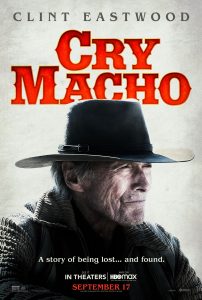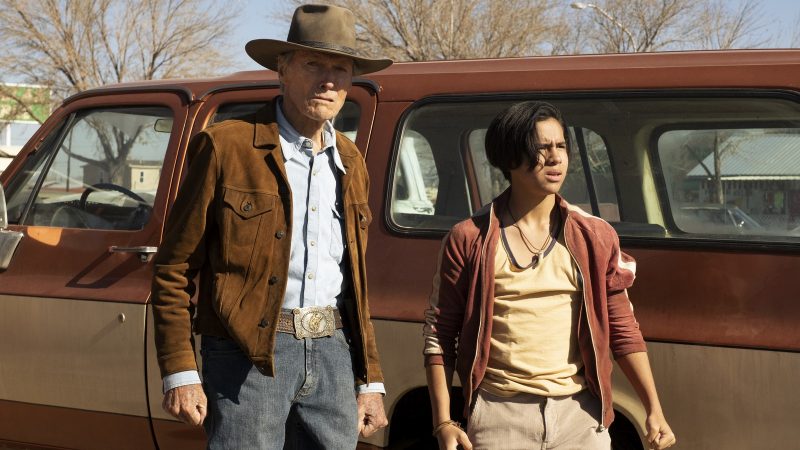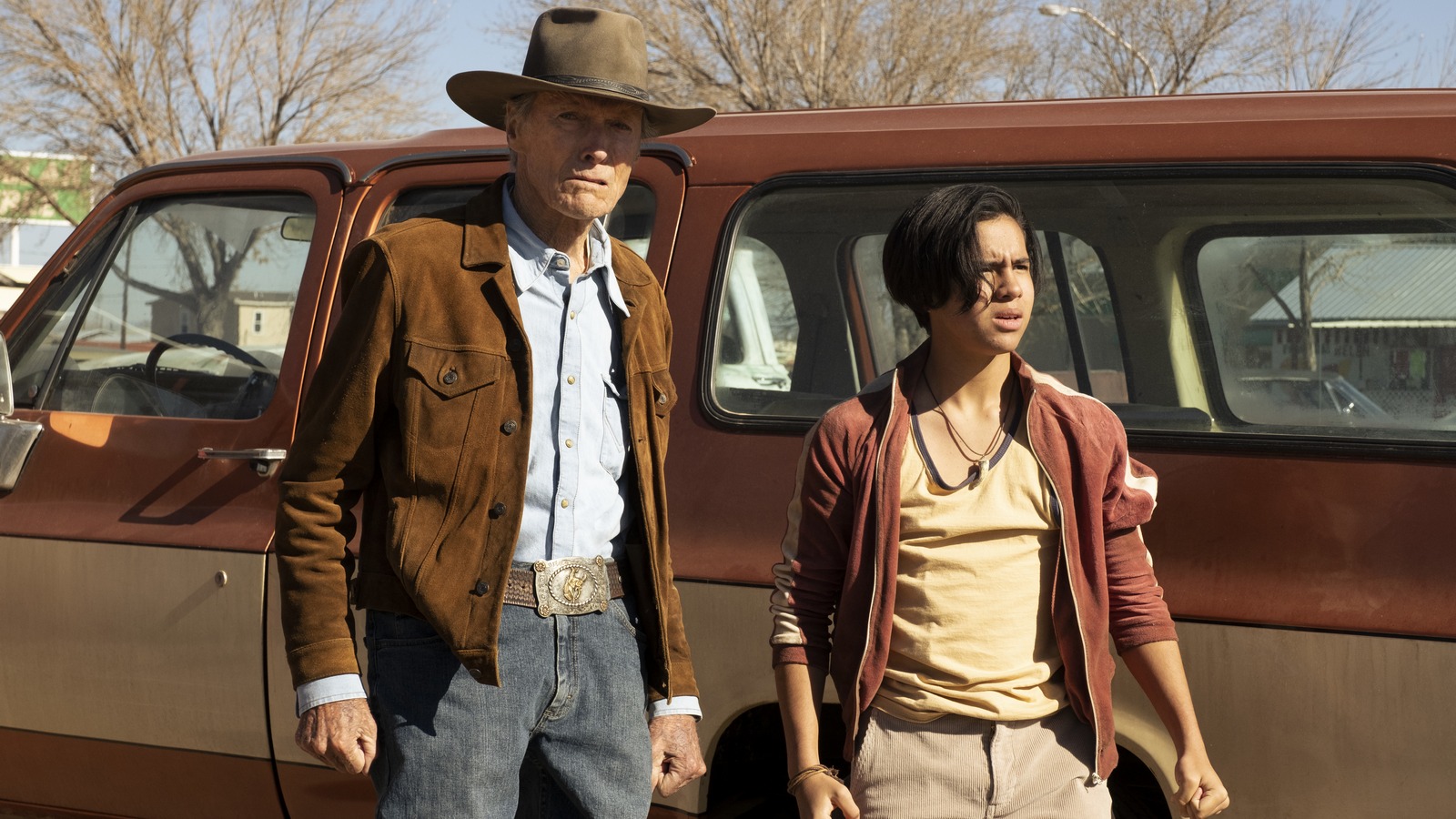
An unceremoniously retired horse trainer agrees to find the missing son of his old boss in Cry Macho.
Horse trainers and breeders know when it’s time to retire their once-virile studs. The story is much the same when stable owner Howard Polk (Dwight Yoakam) makes the same decision about one of his employees and good friend Mike Milo (Clint Eastwood). The old man accepts his fate with the same nonchalance as replacing a pair of worn-out shoes. There’s just no surprise to be had. Mike also knows that Howard was once his savior, having given him a second chance years ago when a crushing injury threatened everything. It’s that favor that Mike seeks to return when Howard asks for his help in locating his estranged teenage son Rafael (Eduardo Minett). Mike’s journey to locate the boy takes an unexpected turn when events are not as cut and dry as Howard made them seem.
Clint Eastwood has had an incredible run in and out of Hollywood. His legendary film career spans an astonishing seven decades. Few stars can look back on even half of that accomplishment. It’s a legacy during which Eastwood reinvented himself several times along the way, always with a winning outcome. In his latest film, Father Time is the one offering up the infamous line, “Go ahead, make my day.”
Eastwood’s latest film is a misstep in nearly every direction. The story feels as tired and worn as Eastwood looks. The learned power and believability that magically transformed his aging character in 2008’s Gran Torino is nowhere to be found here. It’s hard to criticize such an icon for wanting to believe that he still has the stuff to pull off such grand illusions, but the images that we see belie the reality. What remains is sadly embarrassing.
We watch his character walk with a sense of frailty, but are asked to believe that he’d have no trouble breaking in wild horses or punching out a thirtysomething bad guy. We cringe as two much younger women incredulously throw themselves at him for no discernible reason.
His once flawless directorial vision for the proper shot and tone proves in desperate need of glasses. Technical mistakes pile up like horse manure in an untended stall. Ludicrous story elements distract us in nearly every scene. His character keeps past press clippings framed on a wall, as many people do, but included among them is the news clipping of his horrible accident many years before. No one does that. In Mexico, the locals inexplicably don’t bat an eyelash when he acts as if he’s healed one of their ailing goats by simply petting him.
Many of the faults of the film could be forgiven if its antagonists were anything other than ridiculous slapstick cartoon characters. Their inept attempts to thwart Mike’s efforts prevent even a whiff of tension from building. The final insult is that Eastwood’s main costar turns in a performance best meant for a grade school auditorium. It’s almost an affront to Eastwood’s legacy, except that we know that Eastwood was the architect behind every lousy frame.
Eastwood’s days as the fastest gun in the West are long behind him. It’s time for him to sit out on the porch and regale us all with the escapades of his past while leaving the future to the new gunslingers.



